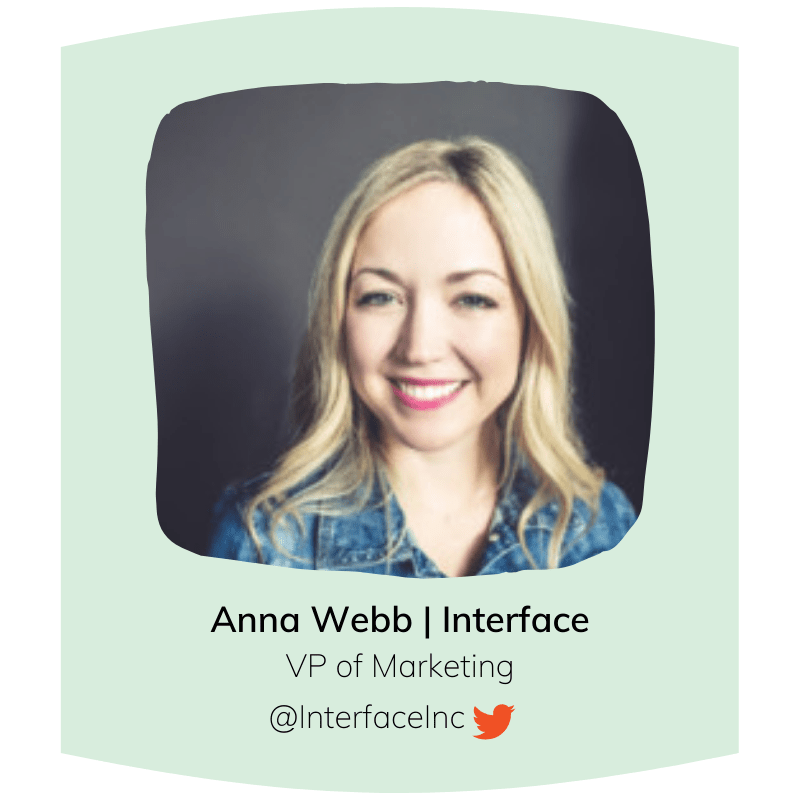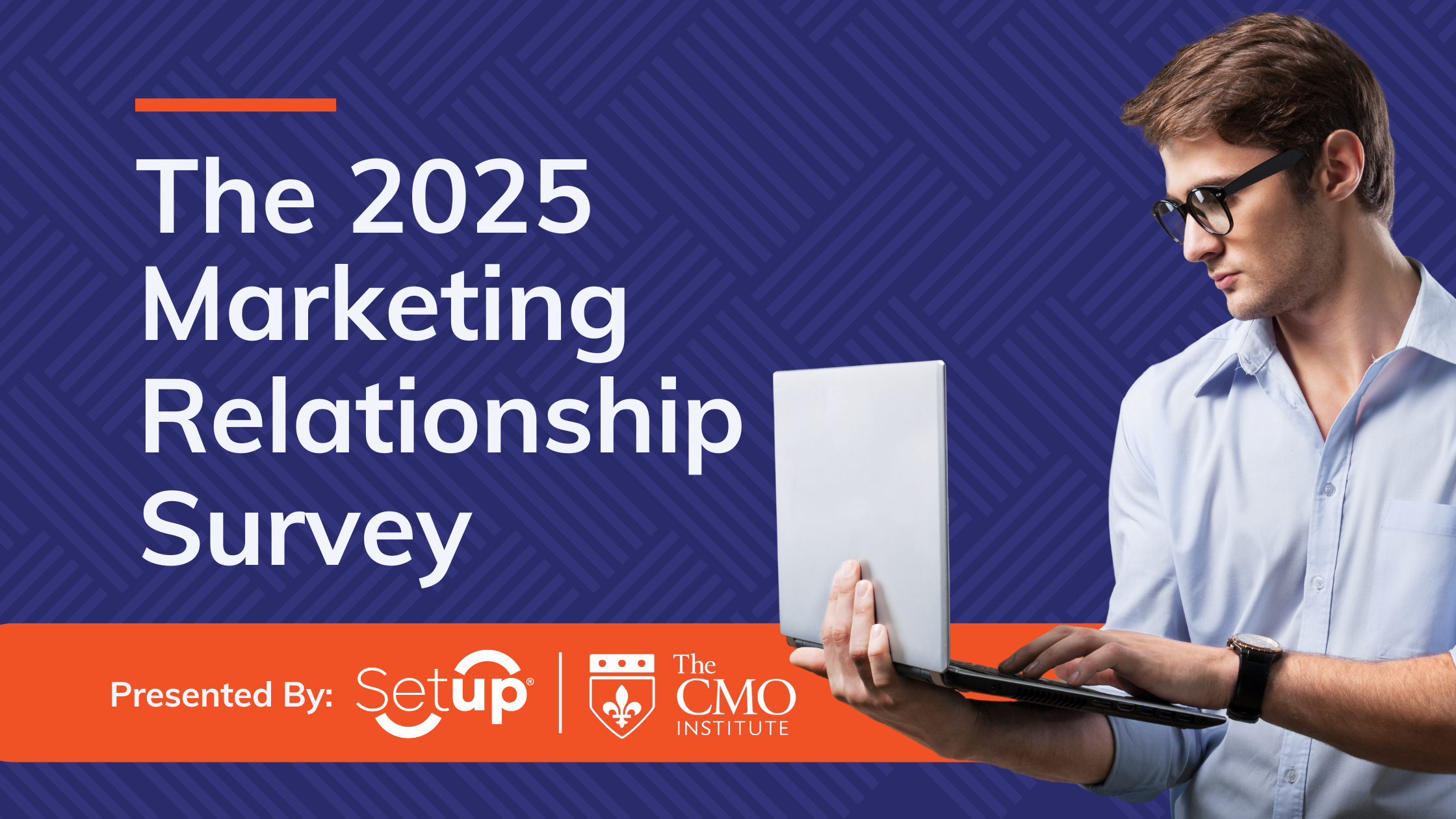6 Questions for Inspirational Women in Marketing
According to the United States Department of Labor, 57% of market research analysts and marketing specialist roles are made up of women. Take a look at the make-up of client-side members of the Association of National Advertisers (ANA), and notice 67% are women and 45% of those women are Chief Marketing Officers (CMOs). The marketing industry is increasingly and overwhelmingly female.
To celebrate women in the marketing profession during Women’s History Month, we asked women marketing leaders from Mizuno Corporation, Interface, Hiscox USA, and Great Clips, Inc. about their personal triumphs, tribulations, and advice about working in the marketing industry.
Meet the leaders:
Q: What inspired you to pursue a career in marketing?
Lisa Hake: My original inspiration to pursue a marketing career dates way back to high school in the late 80’s when schools used to make students take crazy assessment tests to tell you what you should be when you grow up. I remember being extremely disappointed in my results that were travel agent/flight attendant - careers that didn’t need a college education. I was goal oriented and wanted to go to college, so I was challenged to think about what else I should pursue. At the same time, I had just started a high school marketing course and I’ll never forget my teacher, Mrs. Jurgens. She helped me understand the role of marketing and potential career aspirations. She convinced me to join DECA and get more involved in learning about marketing and business. Having her as a role model, who pushed and encouraged me is what led me to this career choice.
Anna Webb: Creativity runs through my veins. My mother is an artist by profession, and instilled the value of the arts and thinking creatively in all of her children. While I do enjoy creating, I also have an equally pragmatic and analytical mind. The intersection of the [two mindsets] for me was Marketing. So while I may not be the “creative” concepting the photography, or designing the brand identity, I am thankful to work with those brilliant minds every day.
“Marketing satisfies both my creative and analytical mind.”
Maureen Kelly: After college, I started working in finance and the more I was in my role, the more I realized I wanted to be working in the marketing and event department. I wanted to be around more people and less tied to a desk. The good news was that my company had a “non-job-related tuition reimbursement” program and I saw that NYU had a certificate program in Sports and Special Event Marketing. I jumped on it and after I completed it I saw an ad in the NYT wedding announcements that listed a couple and the woman was “Special Events Manager at the National Hockey League”. Light bulb moment.
I had a name and a title, so I wrote to her for a job and although I had very little event experience I was called in for an interview and as they say, “the rest is history.” I went on to work for the Atlanta Olympic Games, US Open in NY, CBS Sports and the Nagano Olympic Games, and then I worked for a sports marketing agency for 5 years before coming back to Atlanta and pursuing more of the corporate side of marketing.
To me, I just love that in marketing you never know what the next day will bring and although that can be nerve racking, I think it also is what makes me thrive in my career.
Amarena Diaz: My initial interest in the industry was inspired, driven, and crafted by my aunt, a Leo Burnett veteran who worked on the McDonald's account media side for many years. I love the idea of presenting and evolving brands and concepts in new ways. The conceptual aspect of marketing at its core has always inspired me, but the emergence and convergence of digital, commerce, and retail within the space is truly what drives me. I’ve been in the industry now for over 16 years and have worked across 35+ brands.
“The conceptual aspect of marketing at its core has always inspired me, but the emergence and convergence of digital, commerce, and retail within the space is truly what drives me.”
Q: Are there specific challenges you have faced as a woman in marketing and how did you overcome them?
Hake: I’ve absolutely had challenges. After graduating from college, I finally landed a job in the glamorous industry of waste water treatment. Sure, I got to travel to many different countries, but with the primary intent of visiting wastewater treatment plants and viewing marketing equipment to help treat that nasty water.
I attended many trade shows, working at the booth and interacting with prospective partners in this male dominated industry. While in that role, I was frequently asked if I was hired to work the booth (aka “booth babe”). After a few of those interactions, I knew this was not the industry for me.
“I was frequently asked if I was hired to work the booth - AKA ‘booth babe.’ After a few of those interactions, I knew [that industry] was not for me.”
Eventually, I was able to move up the food chain and started a role at Pillsbury in their International Division. Being part of a large, multinational brand and seeing the opportunities for marketing is what inspired me to pursue my MBA - one of the best career decisions I’ve made. It unlocked so many opportunities - working at 3M, starting my own business, growing my career at Best Buy and, ultimately, becoming the leader of Marketing and Communications at Great Clips. In every role I’ve had, I’ve had challenges to overcome.
Diaz: Ultimately whether you identify a challenge as such is the only thing that is setting you back. Challenges are merely opportunities.
Kelly: I have to say that I’ve been very fortunate in my career to always have good managers and mentors. Whether I was doing contract or full-time work, I’ve always felt a part of a team and, to this day, I try to always remember that with my own team, regardless of their role or gender.
Hake: When I was at 3M, I was on this “high potential” track. I was looking for a female marketing leader (VP+), who was married with kids at home as my mentor and they were unable to find me anyone who could fit that role. That was eye-opening to me and helped me realize how difficult it would be to rise up in the ranks while balancing the life of a family. I’m sure that has changed over the past 15 years, but it really impacted me and was key for me deciding to leave the corporate world to become an entrepreneur.
After my entrepreneurial experience ended (that’s a whole other story), I re-entered the corporate ranks at Best Buy. While there, the biggest challenge I encountered was working with the large cross-functional teams, developing my voice, and taking my seat at the table, [I wanted to] be heard. I overcame this by finding a strong mentor and leader, who challenged me and helped me build my confidence through practice and encouraged me to speak up in meetings. He pushed me to not always wait until I was 100% confident that I had the right answer. It’s better to have a voice, and be wrong, then none at all.
Q: Who is someone that helped you on your current path to becoming a marketing leader?
Hake: I had a great marketing leader at Best Buy, Scott Moore, who believed in me and understood my desire to get back into a more traditional marketing role.
He offered me a challenge and hired me as the Director of Marketing for the Geek Squad. This was a true turning point for me, as Geek Squad was in a turnaround mode, with very little people or monetary resources in marketing. I had to get extremely entrepreneurial and take a step back to understand the customer, their needs, and the role of Geek Squad within the greater Best Buy brand. I had to challenge the status quo and work hard to get my peers and leaders on board with the passion I had for the brand and the opportunities to grow this service-led brand into a bigger part of the Best Buy value proposition. I continue to lean on Scott Moore, CMO for Wynn Resorts, today as a mentor and friend.
Kelly: I’ve been very lucky throughout my career and I’ve had wonderful managers. This is not to say that there have not been a few crazy bosses, but even in those few cases I’ve learned what not to do. I think as a marketing leader you never stop learning, but hopefully you’re lucky enough to remember all the great advice you’ve picked up along the way to make you a great leader.
Diaz: So, so many people. I’m such a big advocate to my team about mentorship due to the amazing mentors I’ve had along the way.
Q: What advice would you give to the next generation of women marketers?
Hake: Be willing to start down a path that isn’t scripted in your marketing career guides. If you have a passion for marketing, you can take learnings from so many different career opportunities - whether it be sales, research, consulting or who knows what! In the end, it’s about the experiences you have, the leaders you interact with, and the learnings you gain to build your story and your pitch as a marketing leader.
Kelly: Network, network, network - especially when trying to break into the business. This big world is really very small and, at the end of the day, it really comes down to who you know. So the more you can network, the better your chances are of landing that job, getting a recommendation, or simply just getting advice.
Hake: Find a strong mentor or multiple mentors. This mentor doesn’t necessarily have to be a woman, but find someone who you respect and consider a role model in terms of their approach to leadership, their success story, and their willingness to be open and honest with you. Also, take the time to mentor other upcoming marketers. I have learned a lot about my strengths, opportunities, and perspective on leadership through people I have mentored.
“Take the time to mentor other upcoming marketers. I have learned a lot about my strengths, opportunities, and perspective on leadership through the people I have mentored.”
Webb: The best piece of advice I can give is to embrace the women around you. Nurture your network. Work hard to form relationships with those you work with, those who work in similar positions, and those who can act as mentors and a sounding board when you are faced with a challenge.
I’ve worked with several women over the years who see other women as the competition. But I’ve worked with many more women who I’ve formed lasting relationships with, that teeter between personal and professional - [the ones] who just “get it”. Support other women, and those same people will surely return the favor.
Diaz: Learn to code. Learn a new language. Read a book. This applies to anyone and everyone.
Hake: Be willing to continue learning. Get your MBA (it’s table stakes in many cases), but also become an avid consumer of marketing information and innovations. The landscape continues to change and it’s important to be curious enough to want to learn and challenge yourself to new ways of thinking and opportunities in order to reach customers with the right message, in the right place, at the right time.
Finally...believe in yourself. This takes confidence, and building your confidence takes practice. You have to be willing to not have the right answers, to take the risks and even be willing to fail. Your co-workers and leaders will gain energy from your confidence and be drawn to wanting to help build you up. I see that in many of my fellow female marketing colleagues who have passion for what they are doing, have fun, and ultimately portray confidence that you would want on your team.
Q: What were pivotal moments in your career that contributed to your success?
Diaz: I was fortunate to work on a variety of large-scale campaigns not only as a digital marketer, but as a designer and art director. One of the first larger-scale campaigns that I worked on as an art director/designer was supporting the style guide development for Super Bowl XLIV and the game day guides for the big game.
Webb: I’ve had many moments that I can point to as contributing to where I am today, but the common thread in all of those examples is risk. The biggest example of this was when I left an industry that was very familiar to me – food. I had been a marketer of food in one way or another for nearly a decade. And, while I loved it, there was something very intriguing about trying something new. But I was terrified. A mentor of mine, Jo Ann Herold, convinced me that moving to Interface was the right move for me, and, nearly 6 years later, I couldn’t agree more. People value your functional expertise as much as your industry expertise. Specializing isn’t a bad thing, but trying something new also keeps your perspective fresh. Put yourself out there!
Hake: I’ve had so many pivotal moments within every step of my very non-traditional career path in marketing.
Taking the risk to start and grow a business, with my husband, was probably the most memorable and pivotal moment in my career. Saying good-bye to a nice, safe, well-paying corporate job and investing our life-savings into an unproven business model, was such a risk.
After five years of growing our retail business, becoming franchisors and raising private equity, all the while raising three young kids, we decided to exit the business. This was a learning experience that will guide me through the rest of my career. I learned to have perspective, to have huge respect for risk takers and successful entrepreneurs, and to value the stability and structure of established companies and brands.
Kelly: Taking a risk and moving from a comfortable finance job to an internship ($8/hour) with the NHL to follow my dream job was a pivotal moment. It taught me to be open to go where the job opportunities are (even if that meant moving to another city), to never be afraid to ask questions to get the job done correctly and to pay my dues to get job experience. This also means knowing when “I’ve paid my dues” to get what I truly deserved.
Q: What emerging marketing trend excites you?
Webb: Gone are the days of mass marketing to the broadest audience possible. Here are the days of focus, engagement and two-way conversations. Marketers are getting smarter, shifting their thinking, and creating content towards targeting the most valuable customers – those who are more likely to engage.
Diaz: Cashier-Free Shopping, Machine-Learning/AI, and Hyper-Personalization.
Hake: Artificial intelligence (AI) as a media buying platform is intriguing to me. Every second, digital auctions occur on platforms and websites including Facebook, Google Search, YouTube and millions of websites. A big benefit is that these AI platforms never have to take a break; they run 24/7 and make thousands of decisions every minute of every second focused on driving the right message, to the right audience, at the right time with the highest return on spend.
I’m excited about this at a national campaign level, but also at a hyper-local level. At Great Clips my team develops marketing programs and campaigns to drive brand growth at a system-level (US and Canada) and salon traffic at a local market and local salon-level.
Webb: At Interface, we are employing many of these principles and seeing fruitful results. And what really intrigues me is AI, and the positive impact it can have on this approach. With a finite amount of resources, we have to look for ways to more efficiently reach these highly specified customers.
Kelly: I don’t know if I would look at this as “emerging” but it certainly is a hot marketing trend now and that is video marketing. As Head of Content and Brand Marketing for Hiscox Insurance, it is more important than ever for me to find more opportunities to get our message out via videos. I love storytelling and videos will give us the opportunity to showcase our customers in a unique and authentic way. I am making this a big priority for 2019.
Key Takeaways:
How you respond to challenges will determine the outcome.
Evaluate whether or not your company’s opportunities line up with your current aspirations. If not, find a new company/path.
It’s never too late to start over. Taking a big risk now could pay off in the long run.
Whether a circumstance is good or bad, there is always an opportunity to learn.
Focus on people. An encouraging mentor, a strong team, and wide network - all of these will help you succeed.
Lift others up and you will see a fruitful return.
Thank you to Amarena Diaz, Lisa Hake, Anna Webb, and Maureen Kelly for taking the time to share their inspiring stories. We cannot think of a better way to honor National Women’s History Month!














In the last six years, we’ve surveyed thousands of brands and agencies about their relationships. Each year, the data tells the story that brands want a partner they can rely on, but finding that partner often is difficult, expensive, and time consuming.
Read what brands are looking for in the perfect agency partner.